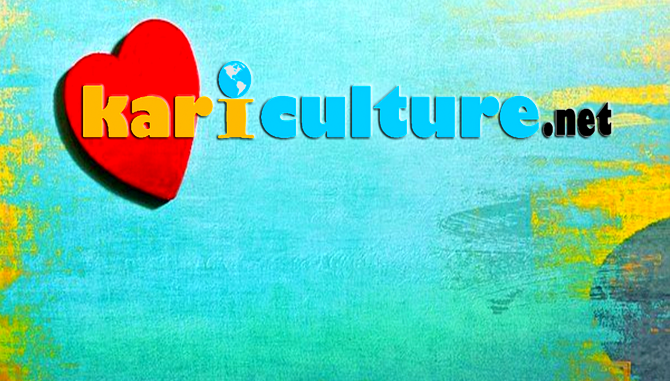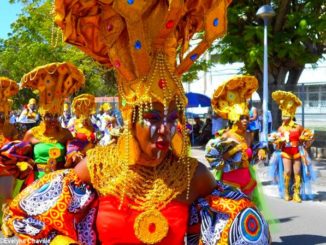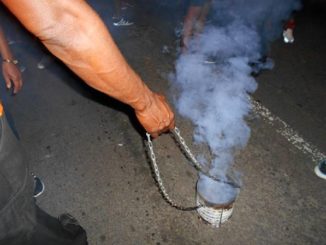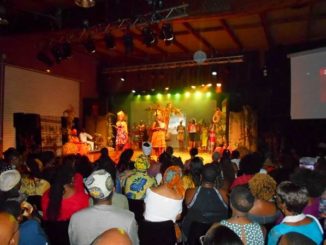
This Monday, September 14, 2020, Kariculture celebrates its 4th anniversary.
On the occasion of this 4th anniversary, Kariculture would like to warmly thank all the people, especially the artists, who gave us some of their time for interviews. Thanks to their valuable collaboration, the first trilingual Caribbean cultural magazine has reached this age and hopes to continue its mission to promote culture and heritage in Guadeloupe (where Kariculture is based) and in all the islands of the Caribbean even if the task is immense and its means are limited.
Kariculture would like to thank all its readers from the Caribbean and other regions of the world whether they are ministers in a Caribbean island, members of an embassy, business leaders, executives, workers, students, housewives, job seekers etc. Some of them are very active on social networks and leave us “Likes” on our Facebook and Twitter pages, private or public comments and that encourages us.
We thank our Caribbean correspondents for the quality of their contributions.
Finally, we thank the French Ministry of Culture for its support.
However, keeping Kariculture alive has been and is a constant struggle. If in many Caribbean islands news websites are legion (particularly in Haiti, which is described as “the poorest country in the Western Hemisphere” and Cuba, which is described as a “dictatorship”), in Guadeloupe, a highly developed French archipelago where many people have several connected smartphones, computers and tablets, this is unfortunately not yet the case. Many of our journalists prefer to be hired in the “big” media instead of starting their own media outlet when there is so much to be done in the field of the press (especially digital) in this country. This new digital press, decried by some, has demonstrated its power from March to May when two thirds of humanity have been into lockdown due to the global Covid-19 epidemic. Connections to kariculture.net have been numerous during this period… If newspapers have survived, it is largely thanks to their websites that have taken over to continue to inform people.
In Guadeloupe, Kariculture, which is a fully digital and independent media, not supported by big capital, often deal with the teething problems as not being invited to press conferences, cultural events, press trips related to culture in the Caribbean (Carifesta, for example). In fact, some people want to tell us that Kariculture is not a media, when it is recognized by the Commission paritaire des publications et agences de presse-CPPAP (Joint Commission on Publications and Press Agencies).
We are now used to this behaviour and we tell ourselves that if they act like this it is because Kariculture scares them: the articles in our magazine are published in 3 languages and are therefore understood almost everywhere on the planet. Work to promote culture done by Kariculture is very important and we see it, for example, during carnival by a significant increase in the number of connections. Yet if several news media in Guadeloupe have an annual convention (over 20 000 euros) with one or more local authorities, Kariculture is ignored.
Last June, the Regional Council of Guadeloupe entrusted a retired journalist with a mission to assess the situation of the media in Guadeloupe following the coronavirus crisis; the audiovisual media complained about the drop in their advertising turnover. We have contacted this journalist to find out what place he reserved for the digital press, he did not answer us…
In addition, we have noticed that our magazine has become a “source of inspiration” for some people, we will only relate a few facts.
There is a journalist from the national radio and television who did not hesitate to take a photo of a visual artist on Kariculture to whom we had devoted an article to publish it in their website; professional decorum would have required her to ask us for permission or sign the photo, but this has not been the case. She cut off the bottom of this photo in order to remove our signature. That is called stealing and we had to report it.
Some time before, a host from the same national radio and television station who received a singer on a Sunday morning did not hesitate to read on air the article we had written about the artist as if it were a press kit, without ever quoting her source. Is this plagiarism or incompetence?
In Mai, 2017, Kariculture had published an article titled Festivals in the Caribbean : Guadeloupe must do better ! , some people were not very happy – we were saying bad things about our country, it seems – but a Guadeloupean academic has taken inspiration from it (and without quoting his source) to write about festivals in the Caribbean, a year later…
There are also other people who come to pick up information about the Caribbean on Kariculture and then go to repeat it in the media – like this person from the event world – without ever quoting their sources.
All these people who come to find inspiration on Kariculture would never have behaved in this way if it were a French or foreign media. We can see it when it comes to talking about an investigation conducted in the archipelago by French or foreign journalists, the local media are quick to say the name of the TV channel, radio or newspaper as if it were an honour when we, members of the Guadeloupean press, had to do this journalistic work.
There are also those few artists who are very happy that Kariculture devotes articles to them when the other media ignore them. But when they gain fame (thanks to us!), they forget to mention the articles published by Kariculture. Is it a mistake or a mentality? In November 2018, even though Kariculture had not been invited, we made a report on all the concerts of the Route du Rhum-Destination Guadeloupe (25 in total), only two artists thanked our magazine because they saw posts on Facebook or Twitter: Gordon Henderson from Dominica and Peter Okoye alias Mr P (ex-P. Square) from Nigeria, two English-speaking artists. Mr P has brought thousands of his Nigerian fans to our Twitter page in his wake.
What about those people (journalist, photographer, commercial agent) we contacted just before the launch of Kariculture? Even if they were paid, they gave us fake appointments before disappearing into the wild or told us that they did not want to associate their name with our website, which they probably saw as a “rag of a newspaper”. Today, these same people come back to us but Kariculture does not need free riders.
Kariculture‘s fight to stay alive also takes place at the judicial level. We have been dragged into the Commercial Court of Pointe-à-Pitre because we couldn’t repay a loan (€13,500) granted by an association that boasts about supporting business creators in Guadeloupe. Has this association already taken this ultimate decision for other project leaders? Not so sure!
At the first hearing, the judge asked us to bring her a payment schedule, the lawyer of this association has taken us out of the courtroom (“I don’t want the Judge to hear what I have to say to you”, he told us) to ask us to also make a payment schedule, an amount has been decided and this document has been sent to his office; he had to submit it to this association.
We were quite surprise to note that, at the second hearing, this lawyer was absent, he had asked one of his colleagues to tell the judge that this association refused the payment schedule and demanded “the total repay of the loan with damages”. Kariculture Communication lost this first battle but we decided to hire a lawyer to go before the Court of Appeal. When our lawyer advised this association’s lawyer that he was now representing us, this famous association suddenly proposed a payment schedule to Kariculture…something it had refused us at the Commercial Court. It made its proposal when we had already paid for a lawyer! Then, ignoring the fact that we had a lawyer to defend us, this association sent us an email of intimidation and reproach so that we would accept its payment schedule. This sudden request for arrangement was not motivated by any ounce of kindness, it would seem that the lawyers’ fees were starting to cost the association a lot of money.
So what was the point of these legal proceedings? To humiliate and liquidate kariculture.net magazine? Is it a revenge? There is a good chance, because we remember that the employee of this association who is “working hard” in this case – “ki ka fouwé bwa an difé”, as we say in Creole (who puts pieces of wood in the fire) – had asked us several times to hire her sister-in-law who works in the press…
When we see this behaviour in an association that is supposed to help project leaders, we tell ourselves that entrepreneurship in the archipelago “is not out of the woods yet”?




